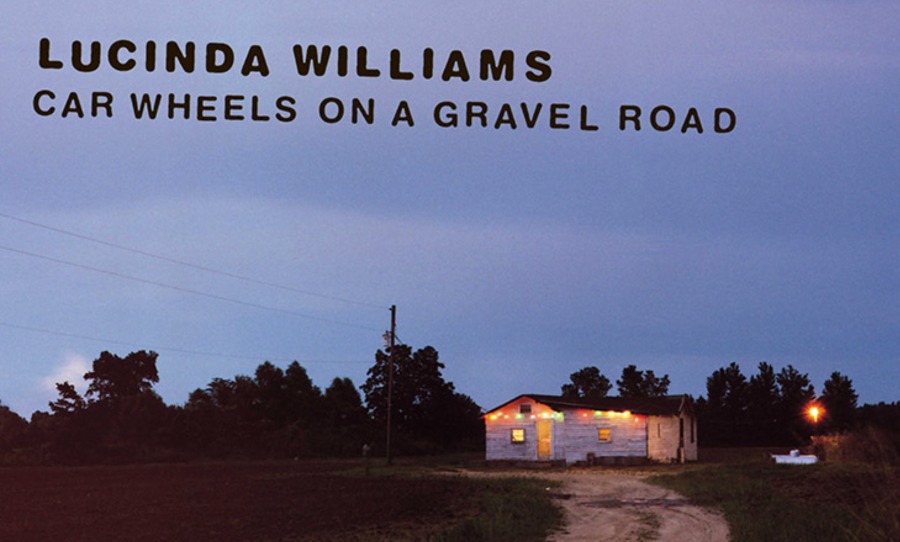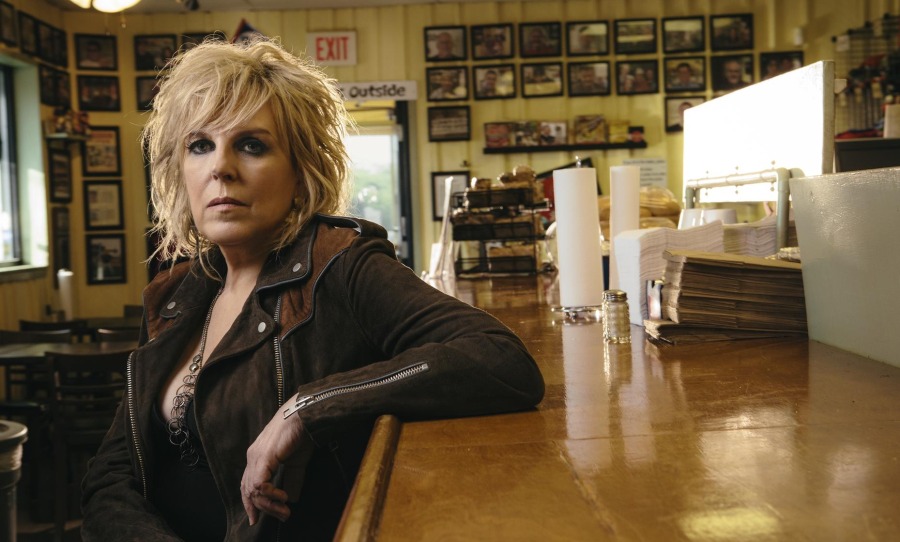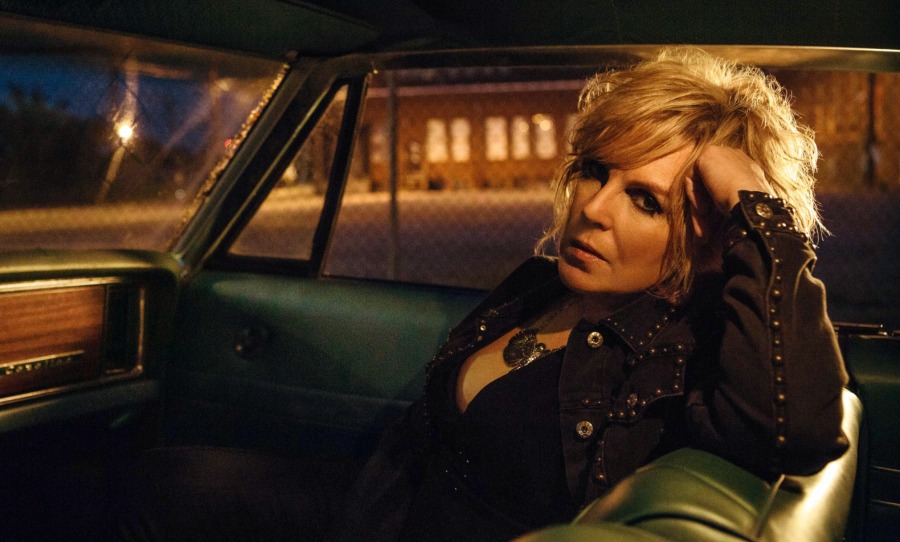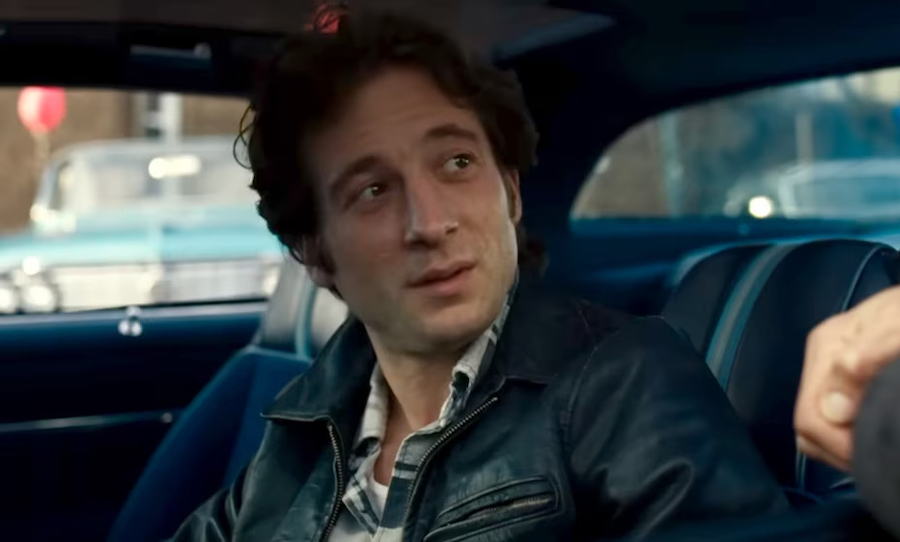Lucinda Williams takes to the road, recounts her heartache and births a new genre on Car Wheels on a Gravel Road, a seminal album that turns 25 this year.
Often, a seminal album can only be described as such with the benefit of hindsight, when the traces of its legacy become noticed in the work of others. Happy Mag’s ‘Why It Mattered’ series pinpoints the albums that, with the passage of time, have left their mark on the music industry and the culture writ large — a segment which would be remiss without the inclusion of the legendary singer-songwriter Lucinda Williams.
Celebrating its 25th anniversary this year, Car Wheels on a Gravel Road undoubtedly remains Williams’ most critically and commercially successful album to date, and for good reason. The lore that now surrounds the singer’s fifth studio effort is one of a musical visionary crystallising their technical craft, laying bare their personal stories, birthing an entire genre, and overcoming industry machinations en route to their masterpiece.

Through its conceptual focus on ephemeral travels, its figure heading of modern Americana music and its emergence from a tedious recording process, Car Wheels on a Gravel Road is proof that a quarter of a century on, Williams is a musician who matters. With the singer’s Bluesfest appearance hotly approaching, we’re taking a look back at all the reasons why Williams’ album deserves its epoch-making status.
The travelogue of a rolling stone
Above all, Car Wheels on a Gravel Road is a travelogue through the American south. Across 13 tracks, Williams recounts the routes and tells the stories of a rolling stone, tracing herself everywhere from Mississippi to Louisiana with sonic detours along the way. On Lake Charles, Williams sings of the namesake city as the hometown of her former boyfriend, while Jackson travels eastbound with pit stops reserved for vignettes of heartbreak.
“All the way to Jackson, I don’t think I’ll miss you much,” Williams sings in her trademark Southern drawl, “Once I get to Lafayette, I’m not gonna mind one bit.” Here, life on the road comes to represent life itself, where the ephemeral and rootless rhythms of a vagabond translate to a swathe of human experiences. Williams sings of drunken brawls and dilapidated jukebox bars on 2 Kool 2 Be 4-Gotten, and cotton fields “stretching miles” on the title track — all en route to a search for home that never fully materialises.

The throughline of travel is a coping mechanism for Williams, where each new stretch of the open road presents a fresh start free from abusive childhoods (Car Wheels on a Gravel Road) and broken relationships (Drunken Angel). By the album’s end, Williams sings with contentedness of her itinerant sonic journey, with the ticking odometer of the titular car a marker of a life well-travelled.
“I just wanna live the life I please,” Williams sings, steadfast in her travels on I Lost It. The singer once likened the album’s ever-navigating track list as “a pitch for a little movie,” and with imagery as rich and storytelling as cinematic as this, it’s a worthy comparison to be drawn.

Blistering breakup blues
The undercurrent that charges Williams’ travels on Car Wheels is the necessity to escape from the blues of heartbreak and loss. Breakups and estrangements remain at the forefront throughout the entire album, but they take on a more blistering tone at the arrival of Car Wheels’ b-side. On Metal Firecracker, Williams recounts a brief fling within the confines of a tour bus, coalescing the album’s two central themes with cinematic precision.
“Once we rode together in a metal firecracker,” she sings atop nostalgic strums that belie the track’s heartache. Later, Williams laments the mistreatment of a toxic suitor, resiliently declaring he’s “not my man” on Greenville. The track’s inspiration is bad-tempered and thieving, the type who loses his “temper when someone looks at [him] wrong.”

There’s a hardened quality to the track’s take on love — reflected in the worn rasp of Williams’ voice — as she tells her abuser to “go back to Greenville.”
But there are moments of tender vulnerability to be found, too. In Still I Long for Your Kiss, Williams acknowledges the misdeeds of her lover while still yearning for their affection, while Joy sees her reclaim her selfhood in southern towns that feel like home. “I’m gonna go to West Memphis and look for my joy,” Williams croons, again attaching geographical signposts to her lovelorn ruminations.
The genesis of Americana
Beyond its thematic brilliance, Car Wheels is rightfully credited with birthing an entirely new genre in what is now considered Americana music. With lyricism reminiscent of peers like Joni Mitchell and Bob Dylan, vocals befitting of a commercial country singer, and a penchant for soft rock and roll, there wasn’t exactly a neat box for Williams to subscribe to at the time of Car Wheels’ 1998 release.
Depending on who’s listening to it, Car Wheels is at once a combination of rag-tag alt-country (title track), jukebox blues (Can’t Let Go), and punk rock attitude (Joy), to the point where the label of a genre works to confine what is a pastiche of all those aesthetics and then some.
It’s the sort of expansive soundscape that aligns with Williams’ existence at the fringes of the industry pre-Car Wheels, but it would go on to inform a new palette drawn upon by legions of musicians to come.

The result was the genesis of Americana. Williams outlined the parameters of the genre that would go on to become its staples, paving the way for acts now synonymous with the sound she created.
Williams arguably cleared the way for the likes of Jason Isbell and Brandi Carlile, birthing a canon that enriched country music’s heavily commercial focus at the time. Williams herself acknowledged her role in birthing Americana, telling Billboard in 2018 that the genre “was creeping in there already. Now, it seems like everything is called Americana, anything that isn’t ‘commercially successful.’”

Live renditions
As touched on above, Williams’ vocals remain the infectious drawcard of Car Wheels. The trademark drawl isn’t just a studio anomaly, given that Williams’ voice is equally intoxicating during live renditions of her seminal album. The singer has performed tracks from Car Wheels at a slew of concerts since its release, with the passage of time only enriching her vocals and the lived-in feel of her lyricism.
Williams’ upcoming appearance at Bluesfest 2023 will no-doubt include tracks from Car Wheels, offering an exclusive spotlight for a visionary who defined what the festival has come to represent. Williams made Happy Mag’s list of the unmissable women performers at this year’s Bluesfest, where she’s poised to steal the spotlight next month on April 9 and April 10.
View this post on Instagram



